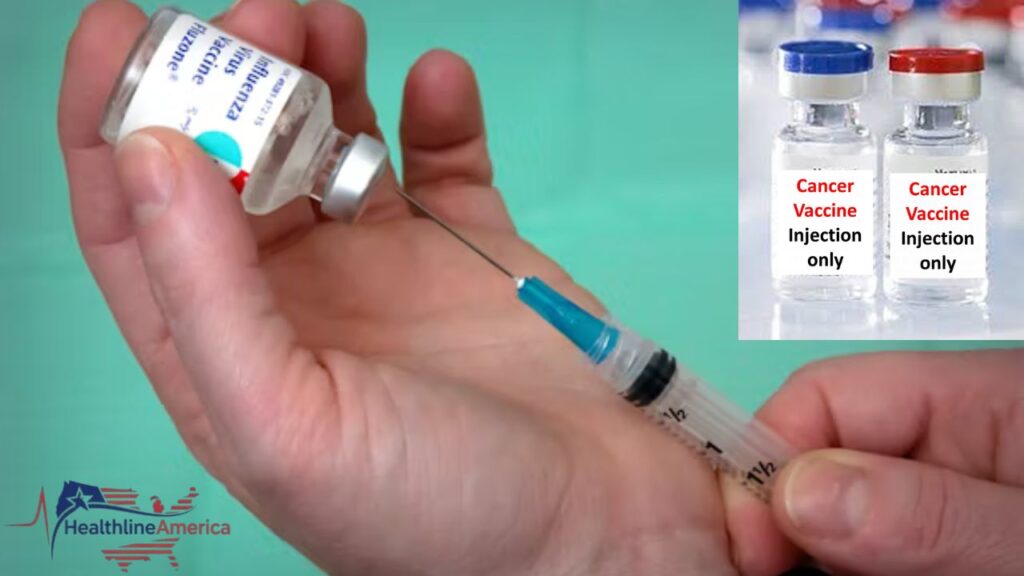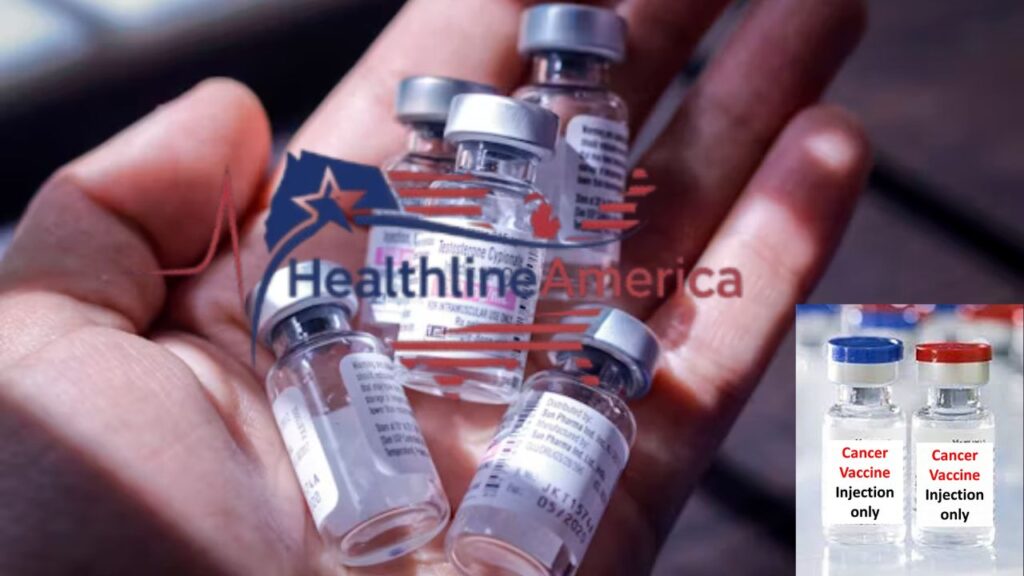Imagine a world where fighting cancer isn’t just about chemotherapy and radiation, but about empowering our own bodies to seek and destroy the disease. This hopeful vision has surged into headlines with the recent announcements about the groundbreaking Russia Cancer Vaccine. Reported as a potential miracle, this new class of therapeutic vaccines is capturing the world’s attention, promising a transformative shift in how we approach this formidable foe. This article will delve deep into the science, the facts, and the immense hope surrounding this remarkable medical development. The Russia Cancer Vaccine could truly change everything we know about cancer care.
At a Glance: Russia’s Cancer Vaccine Breakthroughs
When the news of a new Russia Cancer Vaccine first broke, it captured the imagination of people around the globe. Many headlines treated it as a single, revolutionary product. However, a closer look at the research reveals a far more complex and fascinating story. The Russian initiative is not a single vaccine but rather a dual-platform approach to therapeutic oncology, with two distinct technologies being developed simultaneously. These powerful platforms are aimed at providing new avenues for treatment that are both personalized and potentially more effective than traditional methods.
The dual nature of the Russia Cancer Vaccine program is a sophisticated strategy. By pursuing two different scientific pathways—one based on oncolytic viruses and the other on personalized mRNA technology—Russian researchers are increasing their chances of a significant breakthrough. This strategic pursuit of multiple promising technologies suggests a long-term, comprehensive vision for advancing cancer treatment on a global scale. Below is a summary of the key details of these two platforms, providing a clear overview before we dive into the specifics of each.
| Feature | EnteroMix (Oncolytic Virus) | Personalized mRNA Vaccine |
| Developer(s) | National Medical Research Radiological Centre (NMRRC) & Engelhardt Institute of Molecular Biology (EIMB) 1 | Gamaleya Institute & NMRRC 3 |
| Core Technology | Four non-pathogenic oncolytic viruses 2 | AI-driven, individualized mRNA 4 |
| Primary Cancer Targets | Colorectal cancer (initial), glioblastoma, melanoma 2 | Melanoma (initial), pancreatic, kidney, non-small-cell lung cancer (NSCLC) 4 |
| Current Status | Phase 1 human trials are complete.1 | Human trials began in late 2025.4 |
| Reported Efficacy | 100% efficacy and safety in preclinical trials, 60-80% tumor reduction in early human trials 1 | Promising efficacy in suppressing tumor growth and metastasis in preclinical studies 4 |
| Cost & Availability | Awaiting regulatory approval, no cost data publicly available 2 | Estimated cost of around 300,000 rubles (~$2,870) per dose, planned to be free for Russian citizens 4 |
The Two-Front War on Cancer: How the Vaccines Work
The excitement surrounding the Russia Cancer Vaccine stems from its innovative approaches to treatment. Unlike traditional therapies that often come with severe side effects, these vaccines are designed to work with the body’s natural defenses. The underlying science is both elegant and complex, but it can be understood by looking at two distinct technological platforms being developed simultaneously. This dual strategy is a major part of what makes the Russia Cancer Vaccine a global sensation.
The mRNA Messenger: A Tailored Blueprint for Immunity
At the heart of one of these platforms is messenger RNA, or mRNA, a technology that became a household name during the COVID-19 pandemic.10 In simple terms, mRNA is a naturally occurring molecule that acts as a blueprint, carrying genetic instructions to our cells.1 For a therapeutic vaccine, this blueprint is designed to instruct the body’s cells to produce specific proteins that are unique to cancer cells. Once the immune system recognizes these proteins, it learns to identify and attack the actual cancer cells in a highly targeted way.1
What makes this particular Russia Cancer Vaccine so revolutionary is its personalized nature. Instead of a one-size-fits-all approach, the vaccine is created for each individual patient. This process begins with an analysis of a patient’s tumor to identify its unique genetic mutations, known as “neoantigens”.4 These neoantigens are like the cancer’s unique fingerprint, and they are not found in healthy cells. Using sophisticated AI and a unique software platform, a custom mRNA molecule is then designed to teach the patient’s immune system to recognize and eliminate these specific, mutated cells.3 This bespoke approach is a significant step forward in personalized medicine, providing a powerful, targeted therapy.
Oncolytic Viruses: The Tumor-Busting Vanguard
While the mRNA platform is a major focus, the Russian initiative also includes another distinct and equally promising approach: the EnteroMix oncolytic vaccine.2 This therapeutic vaccine is not based on mRNA but on a combination of four non-pathogenic (harmless) viruses. These viruses are engineered to perform a dual function.5 First, they directly infect and destroy malignant cells in a process called oncolysis. This action creates a controlled disruption of the tumor.5
Second, as the cancer cells burst and die, they release new viruses and other substances that simultaneously activate the patient’s anti-tumor immune response.12 This dual mechanism means the vaccine not only directly attacks the cancer but also strengthens the body’s own defenses to fight the disease systemically.5 This approach has been in preclinical testing for years and has shown a range of therapeutic effects, from slowing tumor growth to complete destruction of cancer cells in some cases.2 A key benefit that has been highlighted is the absence of the serious side effects commonly associated with traditional treatments like chemotherapy and radiation.2 The fact that Russia is advancing two such fundamentally different, yet equally powerful, platforms for the Russia Cancer Vaccine program demonstrates a deep and multifaceted commitment to conquering cancer.
The Journey from Lab to Clinic: The Data Behind the Headlines
Headlines have blazed with incredible news, proclaiming that the Russia Cancer Vaccine has achieved “100% efficacy” and is a potential “miracle”.2 These emotionally charged claims have ignited a wave of global hope. However, an expert-level analysis of the findings requires a clear understanding of the data’s context. The journey from a promising discovery to a public-facing treatment is a long and rigorous one, and Russia’s developments are in the crucial, early stages of this process.
Preclinical Promise: The 100% Efficacy Claim
The reported 100% efficacy and safety results were achieved in preclinical trials.2 These are mandatory, long-term studies that typically involve laboratory tests and animal models. While such results are a vital and thrilling first step, they are not the final word on a treatment’s effectiveness in humans. A significant finding of this magnitude in the preclinical phase is a monumental indicator that a treatment is safe and effective enough to advance to human trials, but it is not a guarantee of the same outcome in a larger, diverse patient population.9 This is an essential distinction for a global audience to understand.
Phase 1 Trials: A Glimpse of Hope
Following the promising preclinical data, the EnteroMix oncolytic vaccine entered Phase 1 clinical trials with 48 volunteer participants.1 The results from this early-stage trial are also highly encouraging and provide a more concrete glimpse into the vaccine’s potential for treating human disease. According to reports from the Federal Medical and Biological Agency (FMBA), the vaccine showed significant results in shrinking tumors and slowing their growth.7
Specifically, researchers observed a reduction in tumor size and a slowed progression of the disease ranging from 60% to 80%, depending on the type of cancer.7 The trials also revealed an increase in survival rates among the test subjects.3 A critical finding was that the vaccine was well-tolerated by patients, with no serious side effects reported, a stark and hopeful contrast to the harshness of chemotherapy.2 These results are powerful and serve as a beacon of hope, but the need for larger, multi-phase trials is still paramount to confirm the safety and efficacy of the Russia Cancer Vaccine on a broader scale.9
The Personal Touch: Customizing Hope for Every Patient
A central theme of the Russia Cancer Vaccine is the concept of personalized medicine. The idea that a treatment can be uniquely tailored to an individual’s body is a paradigm shift in oncology. This is particularly true for the personalized mRNA vaccine, which leverages cutting-edge technology to fight cancer with unprecedented precision.
Neoantigens: The Tumor’s Unique Fingerprint
Central to this personalized approach is the concept of neoantigens. When cancer cells mutate and grow uncontrollably, they create new, abnormal proteins on their surface that are not found in healthy cells.14 These neoantigens are like a unique genetic fingerprint for each patient’s tumor.4 Because every tumor is different, a universal vaccine would be like using a master key to open a uniquely keyed lock. The personalized Russia Cancer Vaccine, on the other hand, is designed to create a bespoke key for each individual. The vaccine is “trained” to recognize and attack these specific neoantigens, thereby targeting the malignant cells while leaving healthy tissue unharmed.6 This minimizes side effects and maximizes the effectiveness of the treatment.
A Rapid and Innovative Process
The process for creating this customized therapy is a significant technological leap. The system uses sophisticated artificial intelligence algorithms to analyze a patient’s tumor and design a unique mRNA vaccine.4 The entire cycle—from sequencing the tumor’s genetic data to producing the tailor-made vaccine—can be completed in as little as one week. This astonishing speed is a game-changer compared to the typical timelines for personalized cancer therapies.4
This rapid development cycle is supported by a key policy decision. The Russian Ministry of Health has classified the development and approval of this vaccine under a new, specialized regulatory process that acknowledges its individualized nature.4 This differs fundamentally from traditional drug registration. This bold regulatory move, which echoes the fast-tracked approval of the Sputnik V COVID-19 vaccine, suggests a national strategy to prioritize and quickly bring what are considered critical, cutting-edge therapies to market. It is a decision that could give Russia a significant competitive edge in the global race for personalized medicine, though it also raises questions about the balance between speed and the traditional, rigorous multi-phase clinical trial process that has long been the global gold standard.
The Global Race for a Cure: Russia vs. The World
The announcement of the Russia Cancer Vaccine has placed the country at the forefront of a global scientific race.15 While headlines often frame this as a head-to-head competition, the reality is that the research community is collectively pushing the boundaries of what is possible. The strategies being pursued by Russian researchers are strikingly similar to those of major Western biotech and academic institutions, which suggests that this is less of a winner-takes-all race and more of a collaborative, convergent effort to defeat a common enemy.
Moderna and BioNTech: The Western Vanguard
Two of the most prominent players in the global race are Moderna and BioNTech, both pioneers of mRNA technology during the pandemic. Moderna’s oncology pipeline is focused on personalized neoantigen therapy for melanoma and other solid tumors.16 Their approach is to analyze a patient’s tumor and healthy genes to create a customized mRNA molecule that tells the body how to fight the cancer. This strategy is nearly identical in principle to the personalized mRNA Russia Cancer Vaccine.
BioNTech, a partner in the development of one of the world’s most effective COVID-19 vaccines, is also a leader in cancer immunotherapy.17 The company’s platform includes both “off-the-shelf” vaccines (called FixVac) for common tumor antigens and “individualized” vaccines (called iNeST) that target patient-specific neoantigens.17 The duality of BioNTech’s approach, mirroring the two-platform strategy of the Russia Cancer Vaccine, highlights the scientific consensus that a combination of universal and personalized therapies may be the most effective way to combat cancer.
Oxford University: A Focus on Prevention
Adding to the global effort is the research underway at institutions like Oxford University’s Cancer Vaccine Hub.18 The Oxford team is focused on both therapeutic and preventive cancer vaccines. They are developing projects like LungVax and OvarianVax, which use technology similar to their COVID-19 vaccine to train the immune system to recognize and eliminate precancerous cells before they can develop into full-blown cancer.19 This focus on early intervention is another crucial front in the war on cancer, demonstrating that the global scientific community is not only focused on treating existing disease but also on stopping it before it starts. The shared scientific language and similar approaches across these major research hubs underscore a fundamental point: the ultimate breakthrough for humanity is likely to come from the collective knowledge and findings of all these global efforts, rather than from a single “winner.”
The Human Dimension: Hopes, Cautions, and a Look at Accessibility
For millions of people affected by cancer, the news of a potential new treatment is not just a scientific update—it’s a powerful emotional event. The promise of the Russia Cancer Vaccine has been described as a “beacon of hope” 20 and a potential “miracle” that could save thousands of lives.2 The public sentiment captured in news reports is one of overwhelming excitement, especially regarding a treatment that reportedly has no serious side effects.2 This is a major advantage over traditional, brutal treatments like chemotherapy.

Expert Caution: Balancing Hope with Scientific Rigor
However, within the medical and scientific communities, a crucial counter-narrative of cautious optimism exists. While the initial results are incredibly promising, oncologists and researchers are waiting for peer-reviewed data from larger, multi-phase clinical trials.9 The sentiment is that while the news is exciting, it is still “too good to be true” until validated by a larger body of evidence. The world is watching and waiting for the progression to Phase 2 and Phase 3 trials, which are essential for proving long-term safety and efficacy in a broader population before the vaccine can be officially deployed. The responsible approach is to acknowledge the immense hope while also emphasizing that this is a critical stage of the scientific process, not the finish line.
The Accessibility Advantage: A Free Promise
One of the most remarkable aspects of the Russia Cancer Vaccine initiative is its announced plan for accessibility. The personalized mRNA vaccine is estimated to have a production cost of around 300,000 rubles per dose, which is approximately $2,870.4 For many, this cost would be prohibitive. However, the Russian government has announced that it plans to provide the vaccine free of charge to its citizens under their public healthcare system.6
This decision moves the conversation from purely scientific innovation to social and political strategy. By covering the cost, Russia is making a powerful statement about equitable access to advanced medicine, a topic of intense debate in Western healthcare systems. This policy could significantly impact public perception and adoption, positioning the Russia Cancer Vaccine as a humanitarian effort, not just a commercial product. It is a powerful move that could set a new precedent for how nations approach the distribution of transformative medical technologies.
Meet the Minds Behind the Breakthrough
A true understanding of the Russia Cancer Vaccine requires recognizing the people who have brought this groundbreaking research to the world stage. Their professional backgrounds and decades of experience in medicine and microbiology lend significant credibility to the entire endeavor.
Veronika Skvortsova: A Visionary in Public Health
The public face of the Russia Cancer Vaccine announcement is Veronika Skvortsova, the head of the Federal Medical and Biological Agency (FMBA).7 With an impressive medical career, she graduated from the 2nd Moscow State Medical Institute in 1983 and specialized in neuropathology.23 She has held numerous prestigious positions, including the director of the Russian Stroke Research Institute and the Minister of Health of the Russian Federation from 2012 to 2018.24 A professor and a corresponding member of the Russian Academy of Medical Sciences, Skvortsova has authored over 400 scientific papers and holds seven patents.24 Her extensive experience and leadership in Russian health and medical research have been instrumental in advancing this project.
Alexander Gintsburg: The Architect of Innovation
Central to the development of the personalized mRNA Russia Cancer Vaccine is Alexander Gintsburg, the director of the Gamaleya National Research Center of Epidemiology and Microbiology.4 Gintsburg is a renowned Russian microbiologist and an academician of the Russian Academy of Sciences.26 He is best known for leading the team that developed the Sputnik V COVID-19 vaccine, which was the world’s first registered combination vector vaccine for the prevention of COVID-19.27 His expertise in infectious pathology, particularly in the study of molecular mechanisms and the development of diagnostic test systems, laid the groundwork for the rapid development of the personalized cancer vaccine. His experience with the fast-tracked development and approval of Sputnik V provides valuable context for the current regulatory approach to the new Russia Cancer Vaccine.4
Looking Ahead: The Road to Regulatory Approval
The news of the Russia Cancer Vaccine is a thrilling development, but the story is far from over. The crucial next step for the vaccine is to proceed through larger, multi-phase clinical trials. While the Phase 1 results from the EnteroMix vaccine are promising, the ultimate test of both platforms will come from Phase 2 and Phase 3 trials, which will involve a much larger patient population.
The Russian Ministry of Health has a new, specialized regulatory process for these personalized therapies, which could allow for a faster path to approval.4 However, final regulatory clearance is the last remaining step before the vaccine can be made available to the public.2 Until then, the world will continue to watch, filled with a sense of immense hope and a profound appreciation for the tireless work of scientists around the globe who are working to defeat this life-threatening disease. The Russia Cancer Vaccine has certainly stolen the spotlight, but it is just one part of a monumental global effort.
Your Questions Answered: FAQs About the Russia Cancer Vaccine
What is a cancer vaccine?
A cancer vaccine, or oncovaccine, is a therapeutic treatment designed to either treat existing cancer or prevent its development in the first place.28 They work by training your immune system to recognize and attack cancer cells that contain specific antigens, much like traditional vaccines train your body to fight off a virus.29
Is this a cure for cancer?
While the initial results for the Russia Cancer Vaccine are incredibly promising, it is not yet a guaranteed cure. It is a new form of therapeutic treatment designed to shrink tumors, slow disease progression, and potentially extend survival rates. Its full therapeutic potential will be determined through larger, multi-phase clinical trials.9
What types of cancer does it treat?
The research is initially focused on difficult-to-treat cancers. The EnteroMix oncolytic vaccine targets colorectal cancer, glioblastoma (a highly aggressive brain tumor), and specific types of melanoma (a serious skin cancer).2 The personalized mRNA vaccine is initially being tested on melanoma, with plans to expand to pancreatic, kidney, and non-small-cell lung cancers.4
When will the vaccine be available?
The Russia Cancer Vaccine is currently in clinical trials and awaiting official regulatory clearance.2 There is no official public availability date yet, as it must first successfully complete larger, multi-phase trials to prove its long-term safety and efficacy.9
What are the side effects?
Early reports are highly encouraging, with preclinical and initial clinical trials showing no serious side effects and excellent patient tolerance.2 This is a major potential advantage over traditional treatments, which often come with a host of painful and debilitating side effects.
How much will it cost?
The personalized mRNA Russia Cancer Vaccine is estimated to have a production cost of around 300,000 rubles per dose, which is approximately $2,870.4 However, the Russian government has announced plans to provide it free of charge to its citizens under their public healthcare system.6
Works cited
- Enteromix Cancer Vaccine: Cancer breakthrough? Russia’s mRNA …, accessed September 8, 2025, https://www.business-standard.com/health/cancer-breakthrough-russia-s-mrna-vaccine-shows-100-early-success-125090800142_1.html
- Enteromix, Russia’s cancer vaccine achieves 100% efficacy in clinical trials, accessed September 8, 2025, https://timesofindia.indiatimes.com/life-style/health-fitness/health-news/enteromix-russias-cancer-vaccine-achieves-100-efficacy-in-clinical-trials/articleshow/123749347.cms
- How Russian cancer vaccines EnteroMix and personalized mRNA work to control the life-threatening disease – The Economic Times, accessed September 8, 2025, https://m.economictimes.com/news/international/us/how-russian-cancer-vaccines-enteromix-and-personalized-mrna-work-to-control-the-life-threatening-disease/articleshow/123761246.cms
- Cancer cure? Russia commences human trials of revolutionary …, accessed September 8, 2025, https://m.economictimes.com/news/international/us/cancer-cure-russia-commences-human-trials-of-revolutionary-personalized-cancer-vaccine/articleshow/123072864.cms
- Russia Initiates Phase I Clinical Trial for EnteroMix Cancer Vaccine Based on Four Non-Pathogenic Viruses – MedPath, accessed September 8, 2025, https://trial.medpath.com/news/bb8f5523eaf4504d/russia-initiates-phase-i-clinical-trial-for-enteromix-cancer-vaccine-based-on-four-non-pathogenic-viruses
- Al-Ola A Abdallah: What is the Deal of mRNA Vaccine Against Cancer from Russia?, accessed September 8, 2025, https://oncodaily.com/opinion/al-ola-a-abdallah-341109
- A 100% effective cancer vaccine? Russia’s Enteromix achieves success in trials; Here’s the full report you need to read, accessed September 8, 2025, https://m.economictimes.com/news/new-updates/a-100-effective-cancer-vaccine-russias-enteromix-achieves-success-in-trials-heres-the-full-report-you-need-to-read/articleshow/123749832.cms
- Russia Unveils Breakthrough Cancer Vaccine: 80% Tumor Reduction | News9 – YouTube, accessed September 8, 2025, https://www.youtube.com/watch?v=YQ1HEBLrmEA
- Enteromix: Russia’s 100% Effective Cancer Vaccine Shows Early Success – YouTube, accessed September 8, 2025, https://www.youtube.com/watch?v=TOfnb4x7z7c
- Russian scientists say cancer vaccine ready for use after successful trials – India Today, accessed September 8, 2025, https://www.indiatoday.in/world/story/russian-scientists-say-cancer-vaccine-enteromix-mrna-technology-ready-for-use-2783326-2025-09-07
- Welcome to Moderna Clinical Trials, accessed September 8, 2025, https://trials.modernatx.com/
- trial.medpath.com, accessed September 8, 2025, https://trial.medpath.com/news/bb8f5523eaf4504d/russia-initiates-phase-i-clinical-trial-for-enteromix-cancer-vaccine-based-on-four-non-pathogenic-viruses#:~:text=These%20viruses%20are%20engineered%20to,and%20enhanced%20immune%20system%20activation.
- Russia’s Cancer Vaccine Enteromix Displays 100 Per Cent Efficacy In Clinical Trials, accessed September 8, 2025, https://www.youtube.com/watch?v=pu1Qo2zpImg
- Cancer vaccines: platforms and current progress – PMC – PubMed Central, accessed September 8, 2025, https://pmc.ncbi.nlm.nih.gov/articles/PMC11717780/
- Russia’s First Cancer Vaccine is Ready | The Global Race for Cancer Cure | GRAVITAS, accessed September 8, 2025, https://www.youtube.com/watch?v=T7K3lPQCJs0
- Oncology Research Page – Moderna Clinical Trials, accessed September 8, 2025, https://trials.modernatx.com/oncology/
- Our mRNA Platforms – revolutionizing vaccine technology – BioNTech, accessed September 8, 2025, https://www.biontech.com/int/en/home/pipeline-and-products/platforms/our-mrna-platforms.html
- Oxford Cancer Vaccine Hub, accessed September 8, 2025, https://www.cancer.ox.ac.uk/research/networks/OCVH
- Vaccines for cancer prevention – OxCODE – University of Oxford, accessed September 8, 2025, https://www.oxcode.ox.ac.uk/research-showcase/preventive-cancer-vaccines
- Russia’s Enteromix Cancer Vaccine Shows 100% Efficacy In Early Trials – NDTV, accessed September 8, 2025, https://www.ndtv.com/health/russias-enteromix-cancer-vaccine-shows-100-efficacy-in-early-trials-9235033
- Russia Develops Groundbreaking mRNA Cancer Vaccine Worth Rs 2.47 Crore; To Distribute For Free – YouTube, accessed September 8, 2025, https://www.youtube.com/watch?v=xXUIYuCIRtk
- Russia’s mRNA Cancer vaccine ready to use, shows tumour shrinking results: Report, accessed September 8, 2025, https://www.youtube.com/watch?v=NedqTBBhfoM
- Veronika Skvortsova, accessed September 8, 2025, http://archive.government.ru/eng/persons/197/print/
- HE Veronika Skvortsova, accessed September 8, 2025, https://www.gpmb.org/board/item/veronika-skvortsova
- Alexander Gintsburg – Wikipedia, accessed September 8, 2025, https://en.wikipedia.org/wiki/Alexander_Gintsburg
- Aleksandr L. Gintsburg – Journal of microbiology, epidemiology and immunobiology, accessed September 8, 2025, https://microbiol.crie.ru/jour/pages/view/Gintsburg
- Sputnik V COVID-19 vaccine – Wikipedia, accessed September 8, 2025, https://en.wikipedia.org/wiki/Sputnik_V_COVID-19_vaccine
- Cancer vaccine – Wikipedia, accessed September 8, 2025, https://en.wikipedia.org/wiki/Cancer_vaccine
- Cancer Treatment Vaccines – Immunotherapy – NCI, accessed September 8, 2025, https://www.cancer.gov/about-cancer/treatment/types/immunotherapy/cancer-treatment-vaccines
- Vaccine Therapy for Cancer – Penn Medicine, accessed September 8, 2025, https://www.pennmedicine.org/treatments/vaccine-therapy




This article provides answers to all normal and anxious questions about a cancer vaccine recently reported to have been invented in Russia.